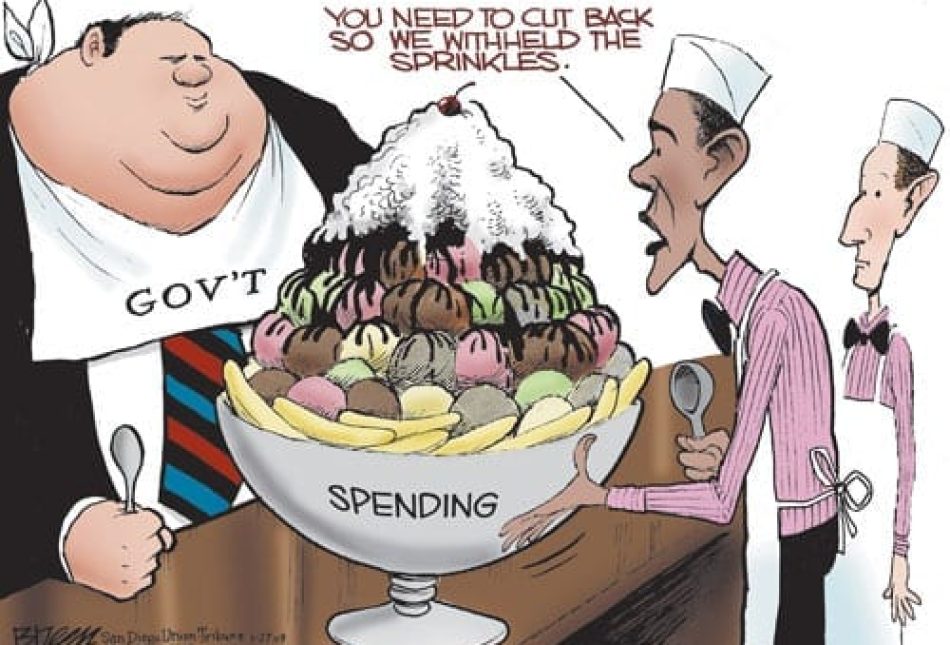Do Spending Cuts Harm the Poor?

Reducing the size of government harms the poor. This is a common assumption made by those who support government welfare programs and it was the assumption made by many of our elected officials in Santa Fe including Sen. Pete Campos who expressed concern about relatively small cuts in K-12 education and other programs during the recently-completed legislative session by stating:
Each dollar that we cut from education reduces a child’s chance of succeeding. Each dollar we cut from social services makes it more difficult for less-fortunate New Mexicans to get the mental and physical health care, food or housing they need. Each dollar we cut from senior citizen programs diminishes the quality of life enjoyed by elderly New Mexicans.
But is it really so? I question this line of thinking and believe that shrinking government actually improves the lives of the poor. How can this be? For starters, government is not usually the most efficient provider of goods and services. Government schools – both nationally and here in New Mexico – have continued to spend more and more money per-pupil over the years with little to show for it in the way of results. Poor schools disproportionately harm the poor and their children because rich parents can buy “school choice” while the poor have limited educational options.
Supporters of government never question whether government is doing what it does – whether it is education or welfare – efficiently when they express concerns over cuts.
With the Legislature throwing up roadblocks to regulatory reform and reform of New Mexico’s “prevailing wage law” which drives up the cost of government construction projects, the fact is that Gov. Martinez will need more cooperation from the Legislature than she received this year to reform New Mexico government towards efficiency.
When it comes time to cut the budget, the poor are a useful and sympathetic group for the special interest to trot out. But, it is noteworthy that much of what government does is used to benefit the wealthy, not the poor. The Rail Runner, spaceport, and film subsidies are just a few of the big government programs enacted here in New Mexico in recent years that disproportionately benefit the wealthy.
In terms of welfare and other programs that are supposedly designed to benefit the poor, it is middle class government bureaucrats that consume 25 percent or more of welfare spending, this according to a report by the federal Department of Health and Human Services. The percentage has grown in recent years. The situation seems unlikely to improve or change because the poor don’t hire lobbyists and don’t know how to work the system while those who manage government programs obviously do.
Nonetheless, if advocates for the poor are going to really do the poor justice, they must do more than simply advocate for more spending and higher taxes. They need to work for spending restraint when times are good and discourage government spending on expensive projects and programs that actually shift money from taxpayers at large those with higher incomes.
This discussion is primarily focused on the state level, but Canada is one country that cut the budget and is experiencing an economic boon. From 1992-93 to 2000-01, Canadian spending on federal programs fell from 17.5 percent of GDP to 11.3 percent. According to the U.S.-based Heritage Foundation, these cuts and other reforms have led Canada to be more economically-free than the U.S.
Canada’s reforms have led to economic growth and improvements for the poor where the bottom 20 percent of income earners experienced dramatic gains since the late 1990s. New Mexico (and Congress where spending has grown out of control since the end of the Clinton administration) needs to follow the Canadian example of cutting spending as a means to economic prosperity.
Paul Gessing is the president of New Mexico’s Rio Grande Foundation. The Rio Grande Foundation is an independent, non-partisan, tax-exempt research and educational organization dedicated to promoting prosperity for New Mexico based on principles of limited government, economic freedom and individual responsibility.

